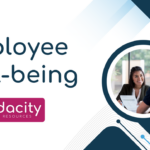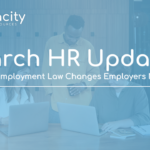2023 HR Updates
2023 HR Updates. HR updates often get overlooked in the hustle and bustle of the holiday season and the new year. In this article, we focus on topics employers should have on their radar for 2023.
Omnibus Spending Bill
The omnibus spending bill signed into law by President Biden on December 29, 2022, includes language impacting employers.
Secure 2.0
A range of retirement provisions (known as Secure 2.0) were included in the omnibus bill, such as automatic 401(k) enrollment, broadening employer 401(k) match options, and employee access to emergency savings.
Protections for Pregnant and Nursing Workers
The Pregnant Workers Fairness Act (PWFA) and the Providing Urgent Maternal Protections for Nursing Mothers Act (PUMP Act) expand federal protections for pregnant and nursing workers. The PUMP Act is effective immediately and the PWFA will go into effect in June 2023.
FTC Proposed Rule
2023 HR Updates. On January 5, 2023, the Federal Trade Commission (FTC) issued a notice of proposed rulemaking intending to ban all non-compete agreements nationwide. The rule would apply to all employers, regardless of size (except for certain entities exempt from coverage under the Federal Trade Commission Act).
As currently written, the rule would apply to all employees and does not provide exceptions for those in higher level executive, sales, or management positions. In support of the proposed rule, the FTC argues that non-compete clauses restrict employment opportunities, decreases competition, lowers wages, stifles innovation, and decreases entrepreneurship.
Unfair Method of Competition
Under the proposed rule, it would be an “unfair method of competition” to:
- Enter into or attempt to enter into a non-compete clause with a worker;
- Maintain a non-compete clause with a worker; or
- Represent to a worker they are subject to a non-compete clause where the employer lacks a good faith basis to believe the worker is subject to an enforceable non-compete clause.
Support and Opposition
The FTC estimates that prohibiting non-competes would increase earnings by almost $300 billion per year and expand career opportunities for 30 million Americans.
Supporters of the proposed rule insist that non-compete restrictions have been abused for far too long and the FTC is taking important steps to curb that abuse.
Those critical of the FTC argue their approach is overly broad. The Society for Human Resource Management (SHRM) raised concerns that the rule would harm businesses that depend on non-competes to thrive, especially in emerging industries where crucial knowledge cannot be adequately safeguarded through the use of nondisclosure agreements.
Several states restrict or outright ban the use of non-compete, including: California, Colorado, Illinois, Maine, Maryland, New Hampshire, North Dakota, Oklahoma, Oregon, Rhode Island, Virginia, and Washington. In its current version, the FTC proposal would supersede conflicting state laws and create a nationwide ban.
What’s Next?
What’s next? The proposed rule is in the public comment period through March 6th. At that point, the FTC might extend the comment period, issue a new proposed rule, terminate the rule, or move to a adopt a final rule. Some experts anticipate that if adopted, the new rule would face widespread legal challenge.
compliance/employment-law/pages/ftc-proposed-ban-noncompetes.aspx
The Equal Employment Opportunity Commission
2023 HR Updates. Several factors to note with the Equal Employment Opportunity Commission (EEOC), including increased scrutiny around employment related tools that utilize artificial intelligence and an updated poster.
Artificial Intelligence (AI)
The Equal Employment Opportunity Commission released an outline of its priorities in a draft Strategic Enforcement Plan (SEP). One priority area brings scrutiny to the use of artificial intelligence tools that support human resource functions. According to a SHRM survey, the use of AI has steadily increased especially in the areas of recruiting and hiring. In fact, nearly 1 in 4 organizations use AI in some form. For example, 64% use AI tools that filter out unqualified applicants and 38% rank applicants.
The EEOC will focus on eliminating barriers and avoiding discrimination in recruitment and hiring, including:
- the use of automated systems, including artificial intelligence or machine learning, to target job advertisements, recruit applicants, or make or assist in hiring decisions where such systems intentionally exclude or adversely impact protected groups;
- restrictive application processes or systems, including online systems that are difficult for individuals with disabilities or other protected groups to access; and
- screening tools or requirements that disproportionately impact workers based on their protected status, including those facilitated by artificial intelligence or other automated systems, pre-employment tests, and background checks.
The draft SEP signals increased scrutiny regarding the use of AI and machine learning tools that may result in employment discrimination. Employers utilizing AI systems should tackle internal testing to make sure they do not unintentionally discriminate against candidates/employees based on a protected class status.
Updated EEOC Poster
The Equal Employment Opportunity Commission (EEOC) replaced the “EEO is the Law” with an updated “Know Your Rights” poster that provides information about unlawful workplace harassment and discrimination under federal law. Friendly reminder to covered employers: update your EEOC poster.
Workplace Wellbeing
2023 HR Updates. With ongoing reports of stress and burnout, along with low unemployment and a competitive hiring market, employers should continue to prioritize workplace wellbeing. The US Surgeon General’s Framework for Workplace Mental Health & Well-Being report highlights: protection from harm; connection and community; work-life harmony; mattering at work; and opportunity for growth.
Minnesota Minimum Wage
The Minnesota minimum wage increased on January 1, 2023:
January 1, 2022 | January 1, 2023 | |
Small Employer | $10.33 | $10.59 |
Large Employer | $8.42 | $8.63 |
A friendly reminder to Minnesota employers, don’t forget to also update your minimum wage poster in 2023!
OSHA Reporting
A friendly reminder to employers that are required to utilize the 300 logs… don’t forget to post OSHA’s Form 300A! The summary page must be posted from February 1st to April 30th.
2023 HR Updates: Stay Tuned!
As we launch into 2023, stay tuned for future HR developments and laws that impact employers across the nation.
Sources:
https://www.ftc.gov/legal-library/browse/federal-register-notices/non-compete-clause-rulemaking
https://www.shrm.org/resourcesandtools/legal-and-compliance/employment-law/pages/ftc-proposed-ban-noncompetes.aspx
https://www.federalregister.gov/documents/2023/01/10/2023-00283/draft-strategic-enforcement-plan
https://advocacy.shrm.org/wp-content/uploads/2022/04/SHRM-2022-Automation-AI-Research.pdf
About the Author
Human Resources thought leader, Stacy Johnston, provides innovative solutions with a mission to support organizations in understanding and engaging their biggest competitive advantage… their employees. Johnston is a licensed attorney and holds the SHRM-CP and PHR credentials.
Interested in HR support? Check out the online resources at www.audacityhr.com.
Looking for resources to prevent workplace bullying? Check out our blog posts: Part 1 and Part 2!






